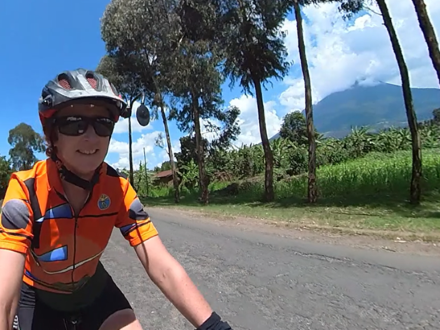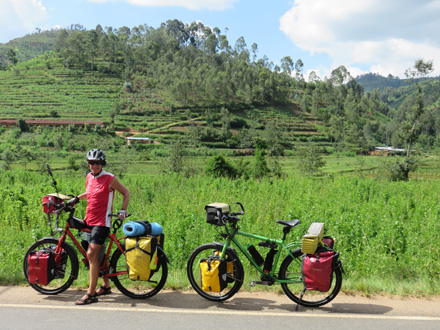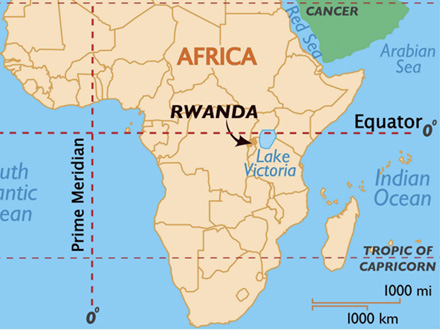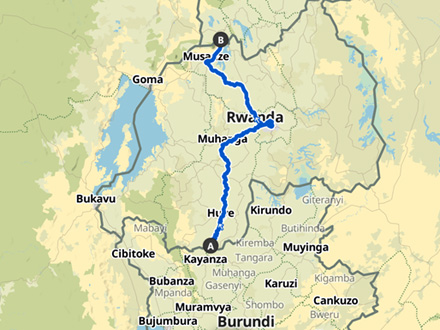
Cycling through the pristine hills and orderly towns of Rwanda give a glimpse into what could be the future of Africa!
Kanyaru (Border with Burundi) – Butare (Huye) – Nyanza – Muhanga – Kigali – Rusiga Highland – Musanze – Cyanika (Border with Uganda)
340km cycled
May 4-15, 2023
Watch the video!
Visa requirements
The East African tourist visa allowing entry to Rwanda, Uganda and Kenya for a non-extendable three-month period costs 100USD and is available on arrival or in advance electronically. With our last remaining cash dollars, Darina availed of this as Kurt, with a Francophonie passport, was able to enter Rwanda for 30 days free of charge. This bought us some time to find a bank and replenish our coveted US dollar stash.
Single use plastic has been banned in Rwanda since 2019, and our panniers were searched at the border to ensure no unwanted plastic entered the country!
This was the first country on this trip that didn’t ask for any health or vaccine certs.

Rwanda is in a league of its own!
From the get-go Rwanda stands out as being different from its neighbours. Even the cattle horns are so long they almost meet in the centre!
The result of the plastic ban is immediately evident in the cleanliness of villages and towns. In addition, streets are lined with manicured gardens and ornamental plants, speed cameras are a common sight and in the capital, Kigali, motorcycle riders and passengers are obliged to wear helmets. Not only that, motorcycle taxis have an ID number stamped on their helmets, jackets and motorbikes for traceability.
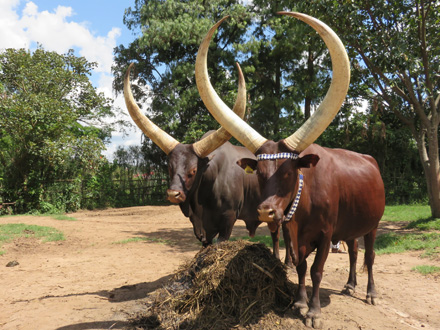

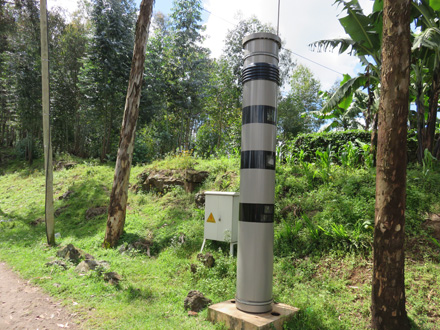
Cafes abound with all the lattes and cappuccinos a heart could yearn for, and fresh herbal tea and hot chocolate are even available! The local beer speciality is made from bananas, has an alcohol content of 14% and is more like a sweet sherry for grandmother than a lager lout’s choice.
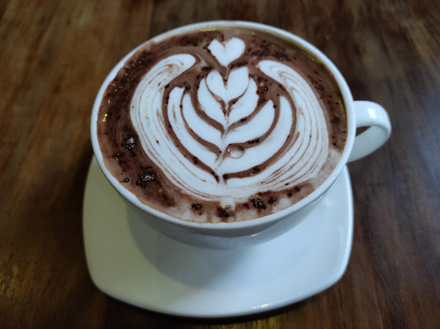

International cuisine is the order of the day, and we enjoyed our first Chinese meal of the trip! All these little details often gave us the feeling of having a break from Africa, and after ten months on the road, we didn’t complain!
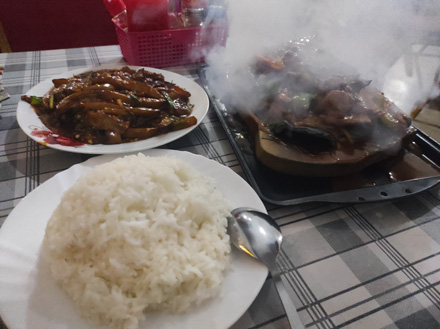
The Land of a Thousand Hills
But let there be no mistake. Any trip through Rwanda will reveal absolutely stunning terraced hillsides … with an elevation profile as jagged as an old man’s teeth! 🤪


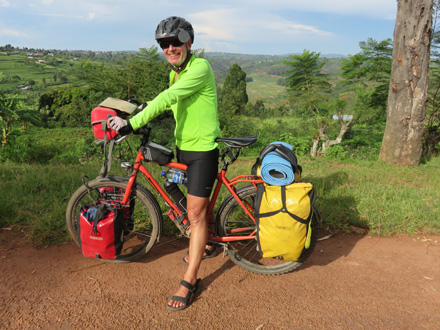
A little history
Like Burundi, Rwanda was a Belgian colony in which the trusted divide-and-rule approach was employed with the same horrific long-term effects of fostered inequality and hatred between the two main tribes: Tutsi and Hutu.
The genocide of 1994, in which 800,000 Tutsi and moderate Hutus were killed, is a recurring theme throughout the country. Today, countless commemoration and reconciliation ceremonies strive to bring the country together as one nation of Rwandans. The country is like a phoenix rising from the ashes, and amazing progress has been made these past 29 years.

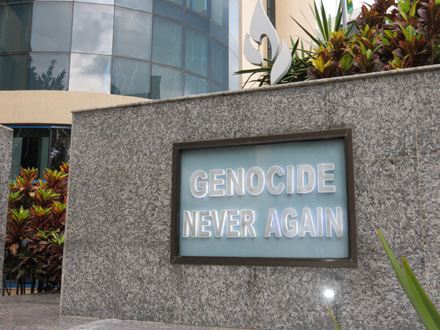
Start-ups welcome
As a result, countless foreigners have made Rwanda their new home, and the country facilitates entrepreneurs from all over the world to start a business in this “Switzerland of Africa”. For example, our bicycle mechanic, Malik (1000 Hills Cycling) and his friend, Lucky (@bar_tending101) are both delighted with their move from Kenya because of the quality of life Rwanda offers: safety, fresh air and business opportunites in very scenic surrounds.
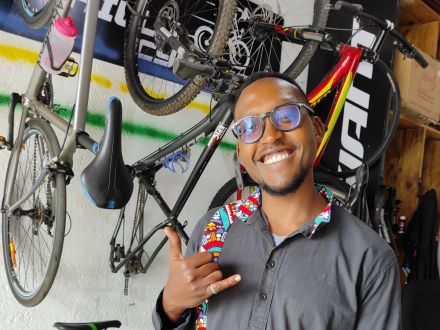

Freedom of speech
Still, 29 years is a relatively short term for reconciliation, as has been demonstrated in Bosnia and Northern Ireland, for instance, and tight control is still exerted around the country. As a result, very few were willing to express their political views for fear of possible consequences. Let’s hope that the transition to a free society can be made in the not-too-distant future.
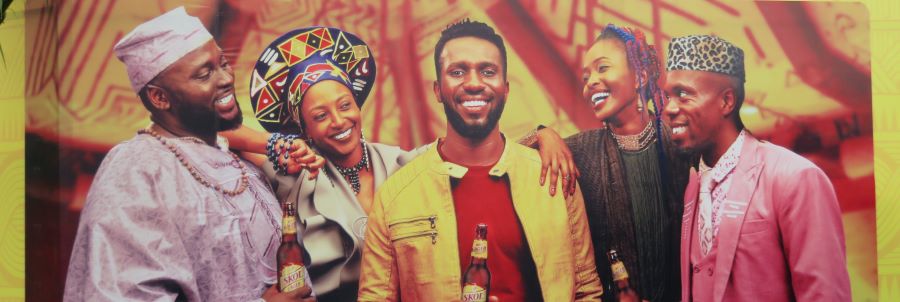
Boris Johnson's Plan
You’re probably aware that in 2022 Boris Johnson signed a partnership with Rwanda, to send some recently arrived asylum seekers in Britain on a one-way ticket to Rwanda for processing. £140m changed hands, but the European Court of Human Rights stepped in and halted the first planned deportation at the last minute, claiming it carried “a real risk of irreversible harm”.
Actually, local Rwandans confirmed that the refugees would indeed be very well looked after, but coming to the most densely populated country on the African mainland would not ensure a lot of opportunities for their future. While start-ups are welcome and tax breaks are available, there is no financial support for anyone else arriving in the capital, and dozens end up trying to make ends meet selling peanuts and SIM cards.

Former King's Palace
The Kingdom of Rwanda was traditionally governed by a Tutsi monarchy, and even through colonial times they had a certain amount of power until the county became a republic in 1962. Traditionally, to gain entrance to the King’s Palace, you have to list seven generations of grandfathers in your patrilineal line. At the replica in Nyanza, Kurt was willing to give it a go! Fair play to him – he listed off all sorts of Hans, Ernsts, Köbis, Sepps and Röbis in such a convincing manner, the gate was opened and we were allowed enter! Little did the guard know that the litany was from his mother’s side!
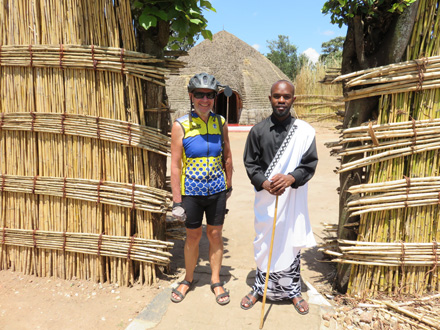
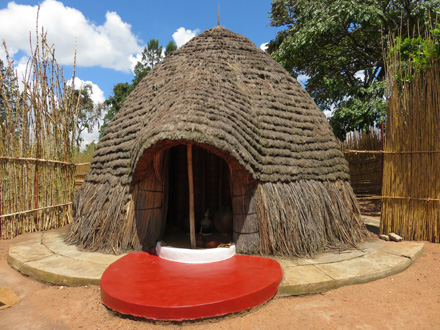
You're never alone!
Despite modernisation, the bicycle is still a common mode of transport in Rwanda, and bike couriers get up to the same tricks as in Burundi! Bicycle taxis are also quite frequent, but the passengers hop off on the steep uphills giving the one-gear bike riders a break!
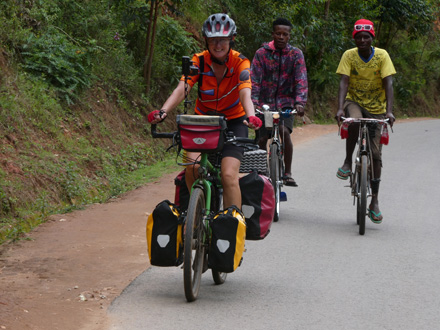

Food
Part of Rwanda’s modernisation plan entailed the banning of street food stalls, which means it’s only possible to eat in restaurants with chairs and tables. Very civilised altogether! This does have the downside that small farmers in the countryside are not able to sell their fruit/vegetables on the roadside, resulting in a huge difference in wealth between the towns and countryside.
While traditional food (similar to neighbouring countries) was available, it often had an international touch. E. g. fish stuffed with pasta and sauces served on the side. Main courses cost anything from 3,000 Rwandan Francs (2.50 Euros), depending on location.
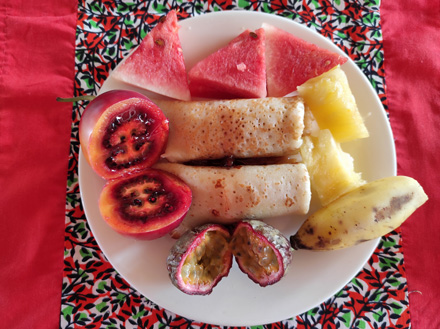
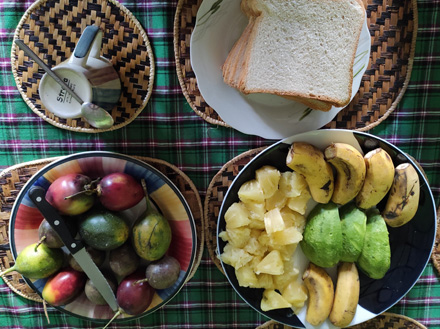

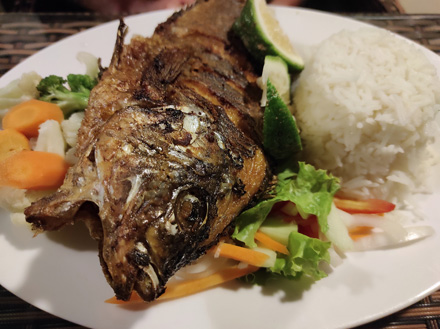

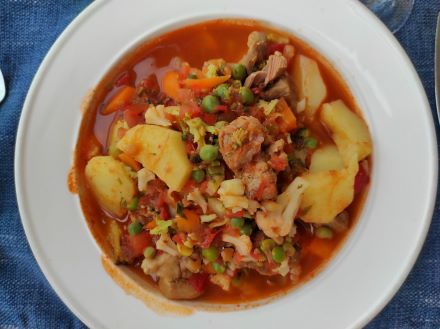
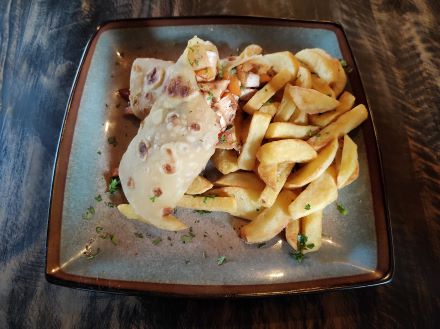
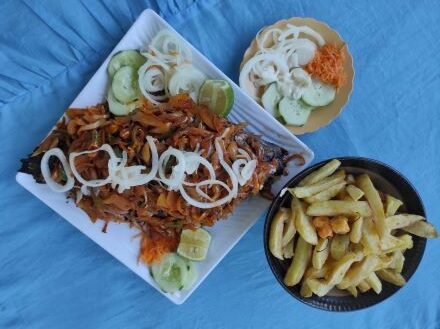
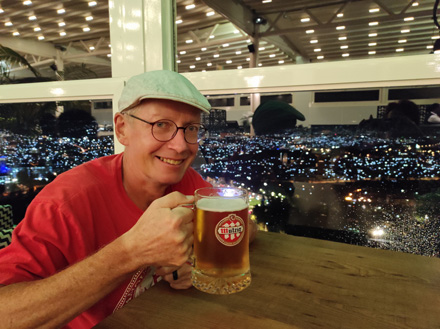
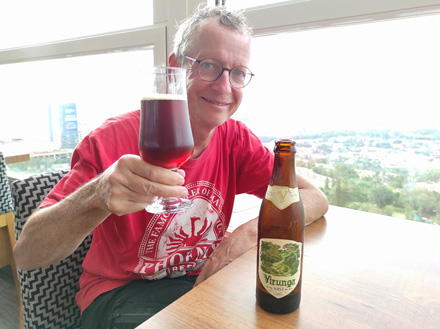
Accommodation
The standard of accommodation was quite high, and double rooms en suite started at 17,000 Rwandan Francs (14 Euros) per night.
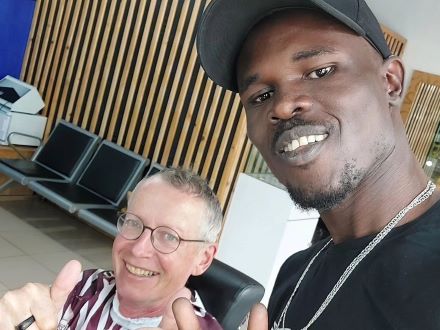
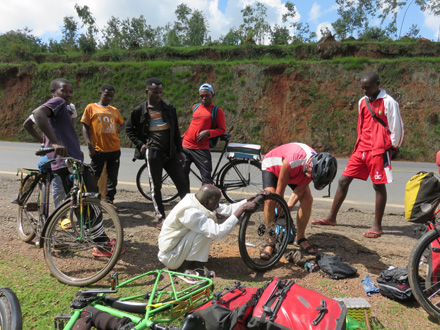
The verdict!
We really enjoyed our cycle through this welcoming, scenic, safe, clean and orderly country. Although Rwanda is even more densely populated than Burundi, we weren’t always the centre of attention which was quite refreshing. But what made our stay all the more enjoyable was that we felt like we were given a glimpse into Africa’s future. Go Rwanda!
